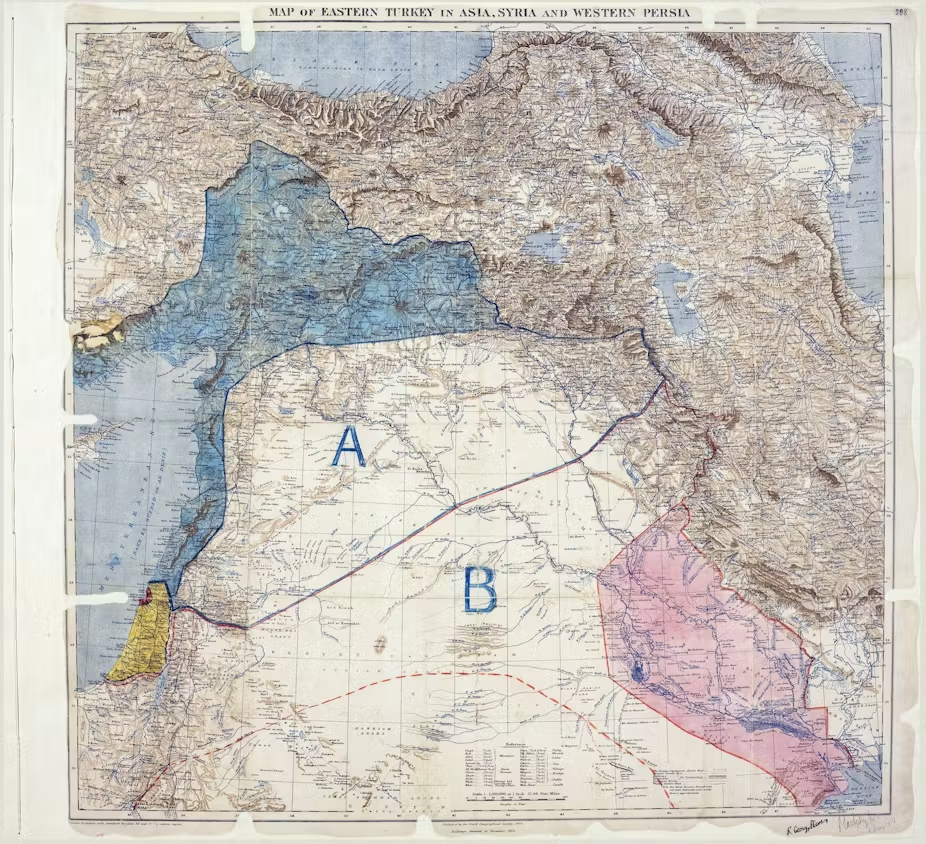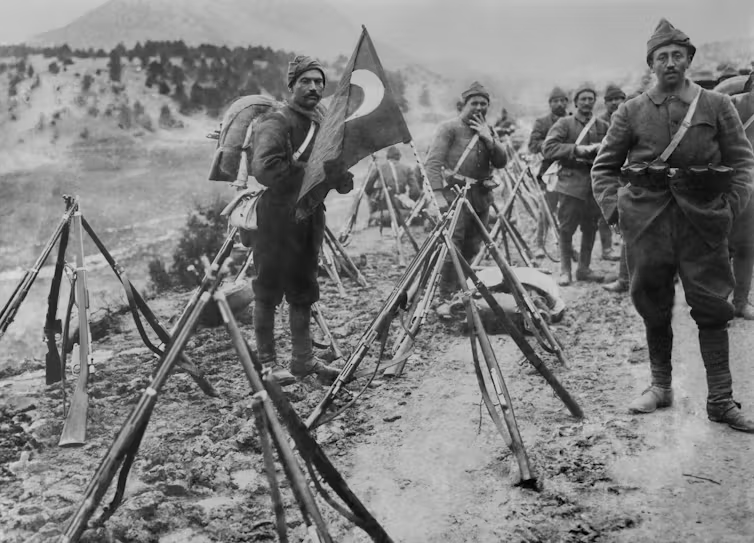What was the Sykes-Picot agreement, and why does it still affect the Middle East today?
Published: 13 February 2025
By Andrew Thomas
via The Conversation website

file-20250206-17-o77gaj
World War I secret agreement led to a century of turbulence in the Arab world
Some national borders are determined by natural phenomena like seas, mountains and rivers. Most, however, are created by people.
This means the creation of borders is often a political exercise – usually informed by the interests of those who create them, not the local populations to whom they apply.
The Sykes-Picot agreement, known officially as the Asia Minor Agreement of 1916, was arguably the first in a series of attempts by colonial powers to mould the borders of the Middle East.
Signed in secret at the height of the first world war, Sykes-Picot was an agreement between France and Great Britain, approved by Russia. It would have lasting consequences for the region.
It is frequently cited as the epitome of European colonial betrayal, and the genesis of most conflict in the Middle East.
But while Sykes-Picot did significantly affect regional politics, the history is more complicated than popular narratives suggest.
‘The Eastern question’
The agreement was seen by the signatories as a potential answer to what was then known by European powers as “the Eastern question”: what would happen when the Ottoman Empire inevitably collapsed?
The Ottoman state in the early 20th century was vast compared to its European peers, encompassing Anatolia (the Asian part of modern-day Turkey) and parts of the Arabian Peninsula.
But it was weak, and had been on a steady decline since the 18th century due to multiple military defeats, revolts and rampant corruption. By the beginning of the first world war, the Triple Entente (France, Britain and Russia) believed the Ottoman state would not survive long.
The Entente aimed to create new “zones of influence” in the Middle East, dividing Ottoman territory into colonial partitions.

By the beginning of the first world war, France, Britain and Russia believed the Ottoman state would not survive long. Everett Collection/Shutterstock
Secret negotiations
Between late 1915 and early 1916, Britain and France sent their respective envoys to negotiate the potential terms of this outcome in secret.
Mark Sykes, a political adviser and military veteran, represented the British. François Georges-Picot, a career diplomat, represented the French.
Italy and Russia also had delegations in attendance, though the discussions were dominated by Britain and France as the most powerful nations. The Ottomans were oblivious to these negotiations.
Under the agreement:
- France was allocated what is now Syria, Lebanon and southern Turkey
- Britain claimed most of modern-day Iraq, southern Palestine and Kuwait
- Russia took control of Armenia.
An area known as the Jerusalem Sanjak (an administrative division created by the Ottoman Empire) in Palestine was to come under an international protectorate, though it was not settled in the agreement as to how this protectorate would operate.
→ Read the entire article on The Conversation website.
External Web Site Notice: This page contains information directly presented from an external source. The terms and conditions of this page may not be the same as those of this website. Click here to read the full disclaimer notice for external web sites. Thank you.



